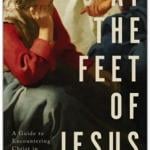In a recent New Yorker piece on “Omission,” John McPhee puts in a word for concise writing. Inevitably, he quotes Hemingway: “If a writer of prose knows enough about what he is writing about he may omit things that he knows and the reader, if the writer is writing truly enough, will have a feeling of those things as strongly as though the writer had stated them. The dignity of movement of an iceberg is due to only one-eighth of it... Read more



















